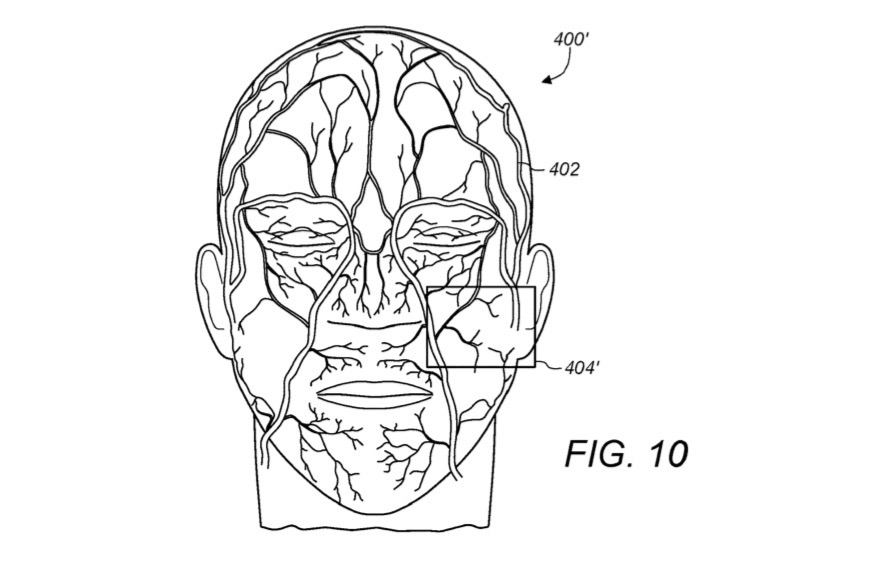Apple’s Vein-Scanning Tech Could Make Your iPhone Impenetrable
 Credit: Anatomy Insider / Shutterstock
Credit: Anatomy Insider / Shutterstock
Toggle Dark Mode
Face ID is one of the most convenient, accurate and secure smartphone-based authentication systems on the market. It isn’t perfect, but Apple is working on improving it.
Unlike rival facial recognition systems (which are objectively terrible), Face ID relies on laser 3D depth-mapping technology to scan and authenticate a user’s face. Although it’s a lot more secure than other systems, it’s still vulnerable to false positives for users who look incredibly alike.
For the most part, that vulnerability has been illustrated by twins who are able to get into their sibling’s smartphone. In at least one case, a son was able to unlock his mother’s device.
Apple itself has admitted that Face ID could run into problems for people with identical twins or family members who look alike. But on Thursday, the Cupertino tech giant may have patented a solution to that issue.
The patent application, titled “Vein matching for difficult biometric authentication cases,” was published by the U.S. Patent and Trademark Office on Thursday. And it describes a system that could shore up the few vulnerabilities that Face ID has.
Basically, the patent details a system that would take subepidermal images, which could scan and analyze under-the-skin features like blood vessels.
Other than that added biometric data, the system would work pretty much the same. It would determine if there’s a match between a current image that the TrueDepth camera takes and previous data on file. If it’s a close enough match, it’ll unlock the iPhone.
Additionally, the vein-scanning technology mat not even warrant a hardware update. The patent describes how the system would rely on vein images taken by an infrared sensor and flood illuminators. That’s technology that is already present in Face ID-equipped iPhones.
The system could, of course, help lock distinguish between visually-similar or identical people and lock down iPhones for users with identical twins. But it could go even father to bump up the security of Face ID.
Besides people who look similar, the only other proven vulnerability of Face ID are high-quality and expensive facial masks. These masks, which are already difficult to put together, can trick Face ID into unlocking.
But with a vein-mapping system, an attacker would need to obtain the specific vein patterns of a user and integrate them into a mask to fool this advanced version of Face ID. That’s not really the kind of biometric data an attacker could get their hands on easily.
This isn’t the first time Apple has filed a patent for similar technology. Back in May 2018, Apple was awarded a patent for “vein imaging using detection of pulsed radiation.”
Of course, Apple regularly files for patents that never make it to a final consumer product. Similarly, there’s no telling when an advanced, vein-scanning Face ID system could debut.
But Apple’s continued work in the area suggests that the company is looking into seriously upgrading the biometric security of its devices.







